Switzerland Community Day 2024
Murten/Morat – 23 March 2024
WPSCD Notes and photos
Full gallery on Google Photos, add yours!
Our day was organised in such a way as to allow all participants to take part in the discussions. Some topics were panels were able to ask questions and share their experiences.
The Switzerland Community Day gathered people from all around Switzerland: contributors, event organisers, etc. To allow an international take on our discussions, we also had guests among contributors from the following communities: Italy (Francesco Di Candia), Germany (Mario Wolf, Birgit Olzem, Thomas Brühl, Simon Kraft, Robert Windisch), France (Bruno Tritsch), Spain (Javier Casares) and on-call for 1 session: a contributor from Kenya (Patrick Lumumba)!
09:30 Welcome coffee and registration
10:20 Opening remarks
- Presentation of the day (not a WordCamp, not a Contributor Day)
- Emphasise on participation from all
- Thanks to sponsors
- Code of conduct
- If needed,discussions in other languages can be held in a second room
10:45 Exchanging ideas for organising WordPress Meetup events
How to reactivate dormant groups, how to get people back to Meetup groups, creating a group in your region
Input from all participants






Baden
Stefan Zurfluh
- Don’t find attendees
- 8 – 10 before the pandemic, none after
- Took place in the private home of the organiser
- Organising in the private home could be the problem
- People are afraid of meeting in private home
Geneva
Patricia BT, András Guseo and Manuel Schmalstieg
- 800 in Meetup Group
- No reply on newsletters
- Created in 2012 by 2 Automatticians, started in a bar
- First official was in a school
- Has sponsors for snacks and beverages
Fribourg
Chistoph von Siebenthal
- 100 in Meetup Group
- Meet in a restaurant
Zürich
Several attendees
- Hosted at Liip agency for free
- Sometimes with drinks or sponsored by others
St. Gallen
Claudius Krücker
- Started with a PR release, some people find it in the Newspaper, otherwise 95% through WP dashboard
- No-show rate is low in WordPress Meetup events <10%, much higher in “normal” Meetup.com events (up to 80%)
Italy
Francesco Di Candia
- Sometimes in company rooms sponsored
- Chance to give something back to the community for using the free WordPress
- Selfie with Matt Mullenweg in Newspaper attracted people 😉
Granada (Spain)
Javier Casares
- Don’t put WordPress in the Topic of the Meetup, be more open.
- In six months, from 5 to 30 people after the pandemic.
- Try to test many things to find what fits best for the local community.
Barcelona (Spain)
Javier Casares
- 250 attendees before pandemic, now down to 25
Gerolstein (Germany)
Birgit Olzem
- Difficult cause of the rural area
- Difficult to find a room for free
Köln (Germany)
Thomas Brühl
- 1400 in Meetup Group
- Before pandemic 15-40 attended
- After 10-30 attended
- Depends on topic of the Meetup
- Actual topic like Gutenberg or KI/AI/GPT catches more attention
- Started in the room of a local agency
- Long time at a Coworking Space, they offered their room in the evening for Open Source Projects for free
- Now in the rooms of an IONOS subsidiary
- Sponsored drinks and snacks (chips, chocolate)
Konstanz (Germany)
Simon Kraft
- Started with four months planned in advance
- Second Meetup just happened, had room for 15 people and had 12 people on the waiting list
- Start with all-time favoured topics: security, maintenance, SEO, plugin development
- Almost all learned about the Meetup from the WP dashboard (not via Meetup.com)
Leipzig (Germany)
Robert Windisch
- Started after the pandemic with an MVP WordCamp
- One day
- 50 people
- Coffee and WiFi
- Get more visibility for the Meetup via the WordCamp
Possible solutions
Find topics and attract people back
- Look at other WordPress Meetup events at Meetup.com and chose the topics which attracts most people
- Do a learn.wordpress.org watch party with discussion
- Don’t necessarily focus on topics which are only related to WordPress, but address generic subjects. Then focus on the topic’s connection with WordPress during the event.
- All-time favoured topics: security, maintenance, SEO, plugin development
- Send a newsletter with funny memes
- Alternate general and specific topics, technical/non-technical topics
- Add a second topic in the month
- “Ask anything” type
- Test different formats as the attendance depends on the format
- Importance of introduction (incl online) to foster a sense of community belonging
Streaming
- Think about streaming, but also think about what you want to achieve, high attended rate or meeting in real life
- Needs good tech and preparation
- May get more attention and more attendees. People often don’t want to travel and you’ll get more attendees from outside the local area. This is a way to grow the group, but you might have a goal of getting people in the room to make more personal connections and more of a community feeling.
Find venues
- Go to schools
- Public spaces
- Libraries
- Restaurants
- Bars
- Churches not possible, code of conduct
- Co-working spaces
- Companies that use WordPress
- Agencies, hosting companies offices
- Necessity to get in touch with educational institutions
- Migros Klubschule (Switzerland) might be interested
11:40-12:00 Coffee Break
12:00 Why sponsor WordPress events?
Roundtable with sponsors. Hosted by Karin Christen
Panel participants:
- Karin Christen – required agency
- Roslyn Lavery – Automattic-Woo (Global sponsor)
- Florian Blaser – AlpHosting
- Robert Windisch – Syde
- Simon Kraft – Group.One-Metanet
- Patricia BT – Interaction.Site (Microsponsor)
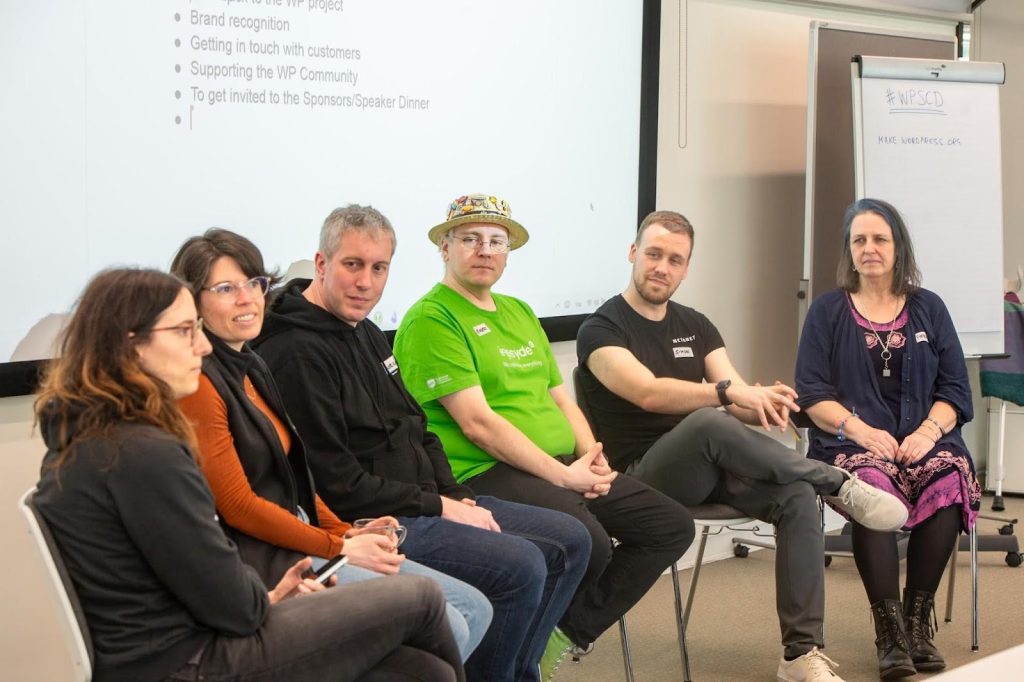
Why
- None of the products would exist without WP
- Getting better known in the community
- Recruit in the WP community
- Promote your product
- Give back to the WP project
- Brand recognition
- Getting in touch with customers
- Supporting the WP Community
- Five for the Future
- Educating companies
- Microsponsor: you get invited to the Sponsors/Speaker Dinner 😉
- Microsponsor: to cover the full cost of participation, normal tickets do not cover the real cost of a WordCamp
Results
- It’s hard to measure
- The panel doesn’t think sponsoring brings back any business
General information
- Amounts are public
- Global sponsoring doesn’t cover the flagship events
- Go talk with sponsors at events, it helps them to know what you need
12:45-14:00 Lunch
14:00 How to attract young people and “pass the torch”?
Patricia BT talks with Liza Adjobi Otchoumou, assistante en pré-formation ERACOM Lausanne, where Manuel Schmalstieg is a teacher.

- Work together with schools/universities, give Workshops
- Liza is teaching at the ERACOM in Lausanne. Students there know what is open source and WordPress
- Liza was introduced to WordPress thanks to her teacher Manuel and likes the no-code. She realised one of her dreams and continue to work with WordPress
- Must be teached: own your data!
- Spark interest to WordPress, it must be attractive. Wix does a lot of advertising.
- Patricia mentions the talk given by Tycho de Valk at WordCamp Europe 2023 about how teenagers perceive WordPress compared to Wix and Shopify. Clearly WP is the least favorite
- Liza says that having young influencers on short videos talking about WordPress would clearly be a gamechanger
- Young people often don’t know if they want to continue once shown WP
- Manuel says that what comes from teachers and parents is boring by default to teenagers, while outside events or third-party interventions and workshops could be more interesting, so should we go to schools?
- A participant asks if it would be possible to install BuddyPress in schools and partner for free hosting for students
- Monique says to emphasise on the feeling of family/belonging of the WP community
14:30 Other country communities, Italy, France, Spain, Germany, + Kenya via video call
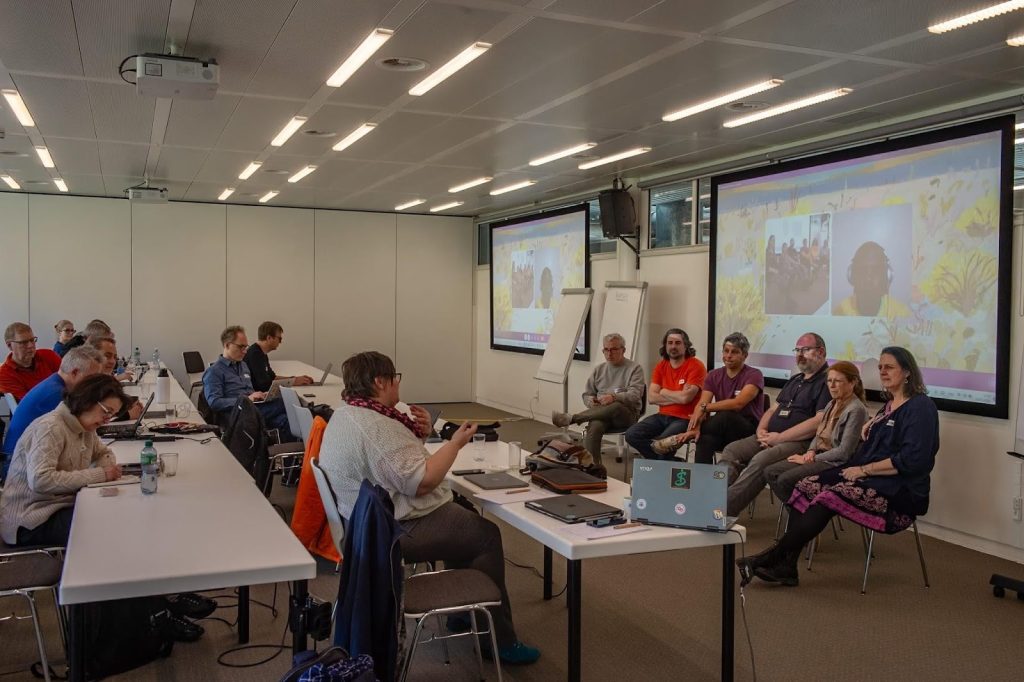
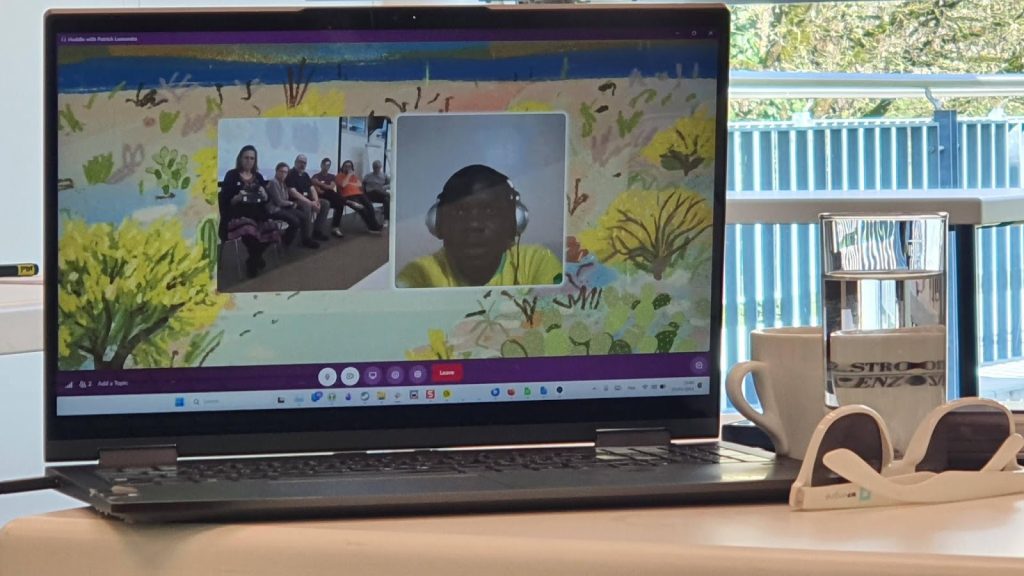
We already had a lot of feedback in the first session in the morning (Meetup) from all the invited guests from Germany (Mario), Spain (Javier), France (Bruno) and Italy (Francesco).
Now we have Patrick Lumumba from Nairobi, Kenya, joining on call!
- He is involved as a co-organiser in the Nairobi community (two groups, one online)
- he is also a mentee in the second cohort of the mentorship program (currently running, March 2024)
- Patrick says that despite having about 2000 people in the Meetup groups, not a lot of people contribute to WP, and not many of them are on the Make Slack.
- He tries to motivate and mobilise people to contribute. He wants to make people aware on how to contribute to WP
- He translates to Swahili, which is the 2nd biggest language in Kenya and a lingua-franca with surrounding countries
- Usually, people there contribute mostly to Polyglots
- There are people developing plugins and themes
Bruno: Contribution in France is very active in the translation and documentation teams, as these two contribution channels are run by a number of highly motivated members.
In addition, some French agencies have realised that they have everything to gain by contributing as much as possible to WordPress, whether to gain notoriety and credibility or to influence the evolution of the tool.
These agencies therefore try to motivate their collaborators to contribute on a regular basis, and sometimes even go to pay for part of the hours devoted to this contribution.
Finally, the translation team organises one or two translation Contributor Days a year (online event) and the WPFR association tries to organise a Contributor Day before each WordCamp in France (in-person event, generally at the same venue as the WordCamp).
Francesco: We work a lot with Slack, a lot is translated via Slack. We are also a small group of friends well-acquainted with each other, and who are interested in making WP advance. We are organising a NextGen event, then WC Europe, and we want to continue to organise further events, be friends, also outside of the WP world.
Javier: Before Corona, there were 30-40 Meetup groups in Spain. Each group worked independently, some also in collaboration with South America For translations, there is a tool enabling “modified Spanish”.GitHub is used for documentation, but it is difficult to use for those who are not familiar with the platform. wordpress.org is used for weekly reminder emails. More attendees are now coming because they see that something is happening.
Patrick: It would be cool if there were Swahili forms & documentation, especially in Tanzania, where practically only Swahili is spoken. Making WP accessible to these people is important. A problem is that it is very difficult to find sponsors in Africa. The WP companies in Africa don’t want to support the community financially.
Mario: Finding sponsoring and meeting places is difficult in Germany. But there is a diverse community that actively contributes to the work on various projects and topics. Most contributors start as polyglots, and after some time, find a place in other teams.
Javier: Contribution works locally only to a limited extent, it is important that everyone cooperates in a global team. There must be a strong bridge, otherwise the community will “go to sleep”.
Francesco: In Italy, people don’t speak English well, contribution is therefore mostly local. In addition, there is a problem with Slack: for each Slack channel, there are 5 subchannels, for each working group.
Patricia: Global PT, he makes sure that themes/plugins etc. are translated. This is done on one external site, but they want to change that. Through that, or if contributions are done via GitHub, people could be credited for their work. For some people, that is important.
Official Meetup groups in the north of France are practically inactive, but also the rest of the groups only appear on the French Slack. The groups are not visible on the dashboard or chapter group, and therefore not accessible to a wider audience.
Questions from the public (answer Patrick): Africa is orientated towards mobile-first access. Therefore, there is a mobile payment system and many developers for mobile and web applications. Many credit card companies like Visa have joined. Since many developers work as freelancers, it would be important that clients based in the USA or Europe pay fair wages. Someone who is paid $50 in the Western world only gets paid $10 in Africa! That’s a problem!
Javier: The app knowledge of the African community could perhaps enable the WP community to advance. That could be a possibility to get WP funding.
15:35 Break
16:15 For new people contributing to WordPress
How do you get started and what areas should you contribute to? The mentorship programme, onboarding new WordPress contributors
Patricia BT and Javier Casares
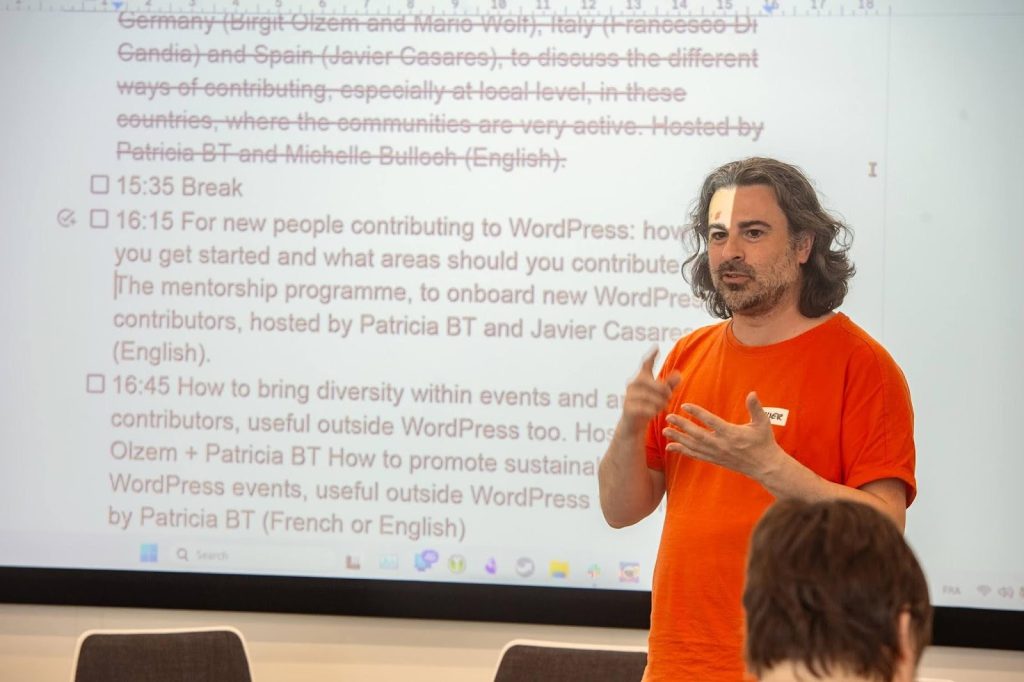
- Explain what the Mentorship program is
- “Seasoned contributors” should help “new contributors” to get into the system. It is in English.
- Program: 2 Blocks
– General: 2 weeks WP tools, teams, etc.
– Specific contribution: 2 weeks looking at work achievements and questions. - Then the program can be extended to 2-3 months so that people really get practice and also stay with it.
- After that, people can get a permanent mentor.
- The system is conceived in such a way that a project is developed and then made available to other communities in a second step.
- Everyone now also gets access to handbooks and videos on WPTV.
- In the first cohort of the Mentorship Program, it was established that it is important for the mentees to learn how the local community functions and which tools are used there. One mentee become a mentor in the second cohort
- In the Mentorship Program, a lot of value is placed on ensuring that people/mentees learn how things work, e.g., a release.
- Patricia: Where does WP find new mentees? Birgit: through the local Meetup groups: It must be made known there.
16:45 How to bring diversity within events and among contributors. How to promote sustainability social, financial, Five for the Future and environmental
Events and resources
Birgit Olzem and Patricia BT
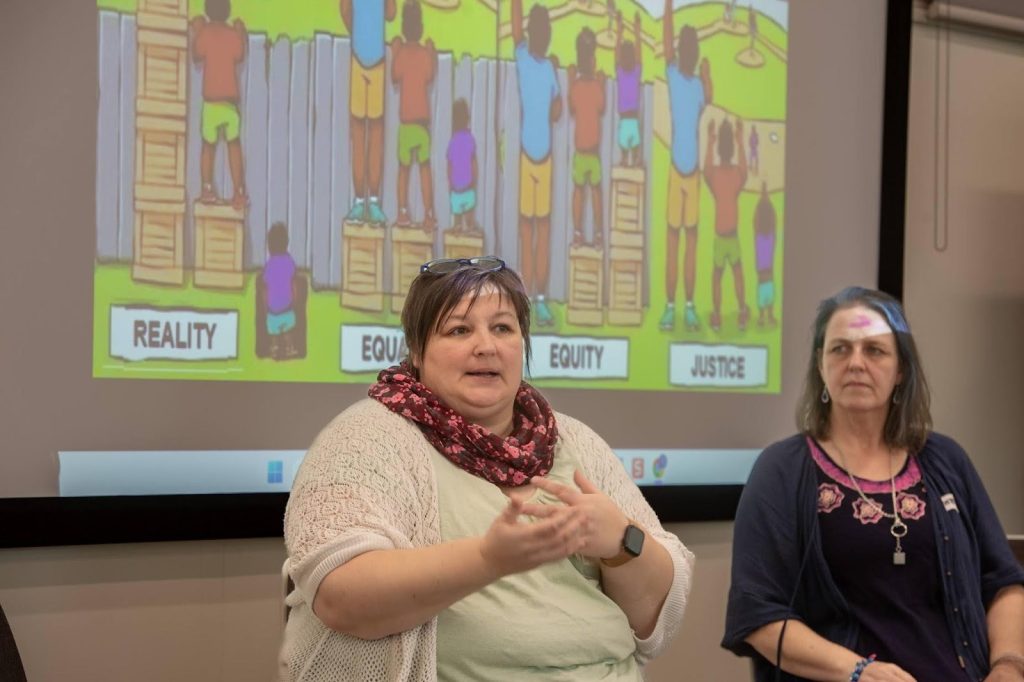
Reality – Equality – Equity – Justice
- It’s important to consider ways to involve everyone
- Belonging is the result of inclusion.
- WP can evolve as an open-source project only if it really embraces various ideas and thoughts and includes them in the projects’ evolution. There is a danger that “the original idea gets lost,” so to speak. Therefore, it also needs a certain balance.
- Therefore, there is a new group which will keep an eye on these topics. DEIB Working Group
- Sustainability
– Environmental
– Financial
– Personal resources, sponsorship and the Five for the Future initiative - WordPress learning courses on wordpress.org
- Not all communities around the world have access to the internet and laptops. Many enthusiasts would be happy to have water and toilets. This is also a topic of inclusion. WP cannot solve all problems. The solution is that everyone, wherever they stand, does what they can to contribute.
17:00 Open Floor and closing remarks
Thank you everyone, it was a great day!
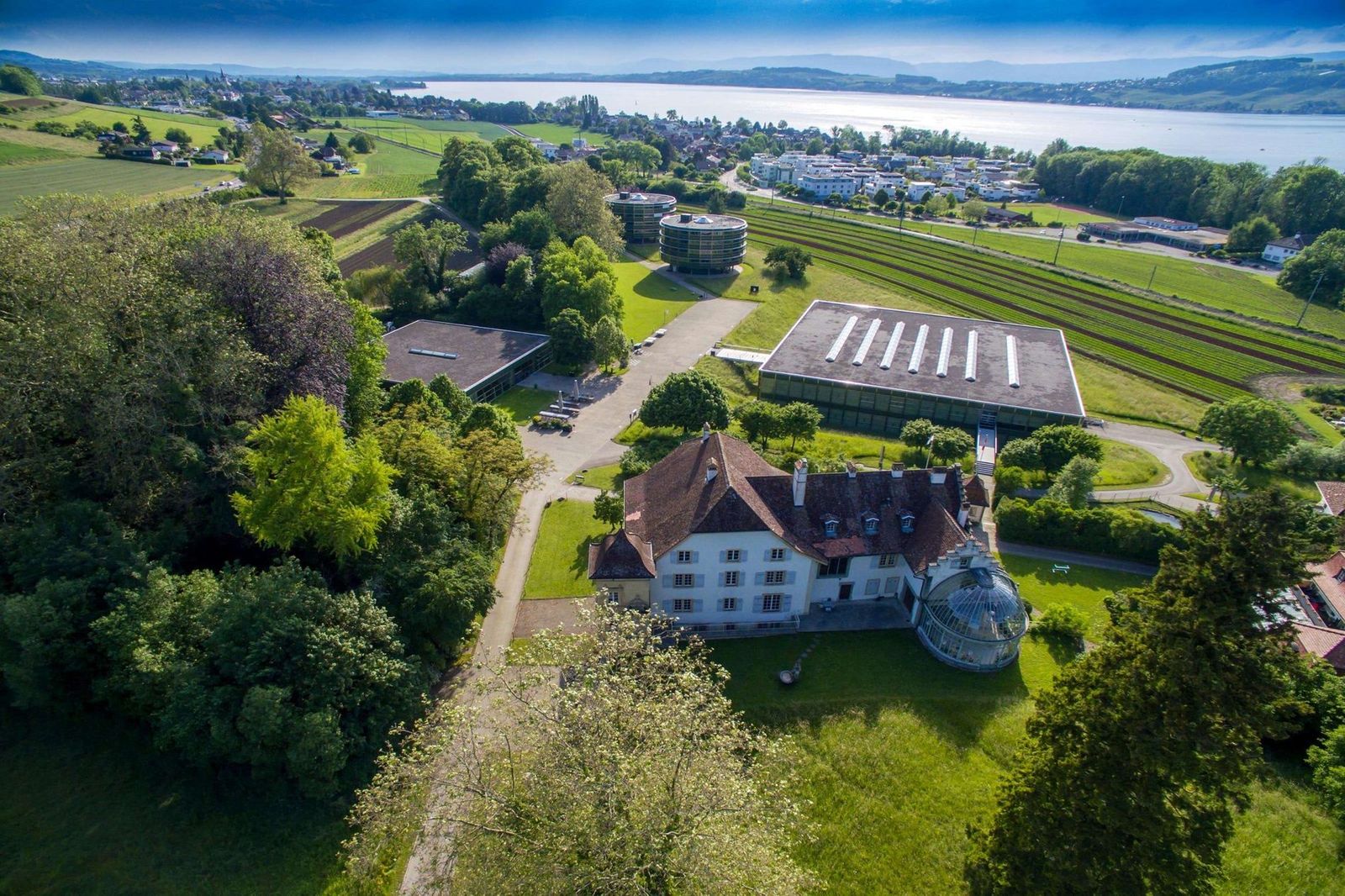


Leave a Reply